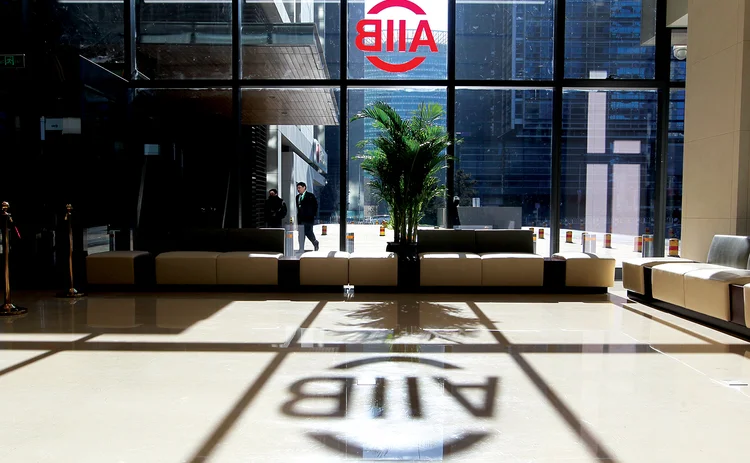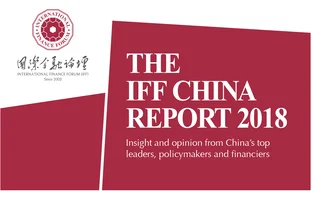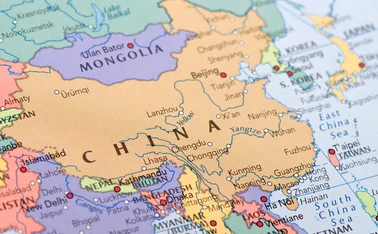
Asian Infrastructure Investment Bank – Raising expectations
The Asian Infrastructure Investment Bank embodies international co-operation and innovation – the spirit of modern China. Strict management, openness and transparency have won the bank wide recognition and acceptance, says Jin Liqun, the bank’s president


Launched just two years ago, the Asian Infrastructure Investment Bank (AIIB) has made an impressive debut, entering the international stage of development and co-operation with steady yet firm strides and laying a solid foundation for the future. The AIIB – proposed by China at the beginning of what is seen as a new period in history – has received positive responses from the global community. An innovative international multilateral development institution with a 21st century governance structure, the AIIB embodies China’s zeitgeist and integrates with national development concept and practice. The Chinese government has kept its promises and unswervingly maintained the nature of the AIIB as an international institution, thus winning wide recognition and appreciation from the rest of the world.
International co-operation under China’s leadership
First proposed by China in October 2013, it took just two years to negotiate with other countries over the articles of agreement and other important policy documents, list the bank and open it for business.

Key factors attributing to these rapid achievements were co-operation, a democratic work ethic, inclusiveness, accountability and dedication. But, from the beginning, the AIIB’s motives were questioned by the international media: what geopolitical intentions does China have? Will the AIIB pose a threat to existing international multilateral institutions and trigger vicious competition in the field of development? Will its investments hurt the environment – for example, exacerbating greenhouse gas emissions and impairing the interests of people involved in the project?
In the face of many doubts and misgivings, the AIIB defended itself – not with words but with performance. The initial performance of the AIIB over the past two years has gained widespread international recognition, gradually resolving many concerns. Its membership has expanded from 57 founding members to 84, and many other countries are also considering joining this international multilateral development agency that displays the distinctive features of this new era.
The AIIB epitomises the global vision and overall outlook of the Chinese government, as well as its inclusiveness and generosity. The report of the 19th National Congress of the Communist Party of China (CPC) proposed that 2020 is the deadline for completing the construction of a moderately prosperous society. Of particular note, we must prevent and mitigate major risks, and target environmental pollution as well as poverty – a difficult battle to win as China still lacks wealth. However, the 19th CPC National Congress unanimously agreed that the Chinese government would contribute 30% of investment to approve the AIIB charter in a timely fashion, a decision enthusiastically supported by stakeholders.
Embodying the Chinese development concept
The AIIB was founded in response to new challenges brought about by globalisation. It aims to boost economic and social development, improve the ecological environment and enhance connectivity through investing in the infrastructure of its member nations. Its ultimate mission is to eliminate poverty in China and its member countries and, to this end, it must adapt to the requirements of the ‘new era’ of Chinese politics and power. The AIIB draws fully on the best practices of existing international multilateral development agencies, while avoiding the duplication of their governance structure and mode of operation. The AIIB draws instead on their strengths, innovates and sets off on a new path in institution-building, operation mode and management style.
The core principles of the AIIB are openness, transparency, independence and accountability, and its mode of operation is “lean, clean and green”. From the inception, the bank has strictly adhered to the principle of streamlining institutions, eliminating redundancies and preventing bureaucracy. It upheld its principle of probity, acting with zero tolerance towards corruption. It pursued green development by implementing the Paris Climate Agreement to tackle climate change. The AIIB must become a bank jointly owned by all its members, take into account the interests of its members in the region and beyond, listen to the voices of developing and developed countries, conform to the trends of the times, and make a larger contribution to peace and development in the region and the world at large.
Rules – Crucial from the outset
Over the past two years, the AIIB has attached great importance to institution-building for risk management through well-established supervision mechanisms and personnel training. A crucial step for any new institution is to establish rules and regulations. Under the guidance of the board of directors, the management departments have set out to establish these from the beginning: business policies, management measures, a complete procedure of project development and approval, risk prevention mechanisms, long-term anti-corruption systems and improved supervision mechanisms. Anyone, be it the president of the AIIB or regular staff, must adhere to and apply the rules and be subject to supervision. Senior managers in particular must be self-disciplined and set good examples to employees. Management departments must always bear in mind that their work is closely supervised not only by the board of directors, but by the entire international community.
To date, all of the AIIB’s investment projects have been organised in countries and regions along the Silk Road Economic Belt, bringing tangible benefits to their inhabitants
To ensure systematic and correct decision-making, the AIIB has established specific committees for the board of directors and management departments, which oversee personnel management, capital operations, risk control and internal audit. The highest decision-making body of the management department is the executive committee, at which all major issues must be fully deliberated and discussed. Decisions will not be finalised and implemented until consensus is reached to avoid arbitrary decision-making. The rules dictate that, even in extreme cases, this cannot be significantly protracted, but where there is discrepancy or disagreement the president will make the final decision and assume responsibility. However, in the AIIB’s two years since inception, this situation has not arisen. A democratic decision-making approach can inspire the enthusiasm of senior managers, enhance their sense of participation and responsibility, help facilitate the wisdom of the masses and prevent heavy losses caused by individual bias, thus ensuring that big mistakes are avoided and small ones mitigated.
It is precisely because of this strict management system and its thorough implementation that three major ratings agencies have awarded the AIIB the highest credit rating. The Basel Committee on Banking Supervision has also rated the bank as being “zero risk”. These ratings have allowed the AIIB to raise low-cost, long-term funds from international capital markets, thereby lowering costs to borrowing countries. It was no simple matter for the AIIB to achieve these high credit ratings in the two years since its opening; to preserve its status, it must make all efforts to adhere to high standards and operate in accordance with the rules to maintain good performance.
AIIB – a driving force actively promoting the implementation of BRI
The Belt and Road Initiative (BRI) and the AIIB, both international co-operation initiatives launched by China, have different objectives but inevitable links. The AIIB is an international agency that operates in accordance with internationally accepted rules; the BRI is a platform for international co-operation attracting international support. The global governance concept advocated by President Xi Jinping – “extensive consultation, joint contribution and shared benefits” – is also applicable to the infrastructure investment of the AIIB.
Alongside other international agencies, the AIIB has signed the Memorandum of understanding on strengthening co-operation in related fields under the BRI with the Chinese government. The warm response of the international community to the BRI has helped expand the reach of its geographical concept and increase the number of participants.
To date, all of the AIIB’s investment projects have been organised in countries and regions along the Silk Road Economic Belt, bringing tangible benefits to their inhabitants. The ethos of the AIIB is in the same key as the BRI’s concept of the community of a shared future –with a shared vision for the future of mankind.
The AIIB has always been committed to investing in sustainable infrastructure projects. Three main criteria exist for investment decisions: projects must be financially sustainable, they must benefit the environment and they must be supported by local people and improve their livelihoods.
In the past two years, the AIIB has approved projects in member countries in transportation – highways, railways and ports – power transmission and transformation, and urban development. In the meantime, it will also step up efforts in loan planning in the next few years to acquire more BRI projects.
Maintaining the credibility of the AIIB
In 2018, the AIIB entered its third year of operations. As an international institution initiated and led by China, the AIIB has not found it easy to win widespread international recognition in a short period of time. This recognition would not have been at all possible without the support of all member states and the guidance of the board of directors, as well as the joint efforts of management and staff members.
The sound and compelling support of the Chinese government must be emphasised, demonstrated by its faithful commitment to not interfering with the daily routine of management and exercising its powers through the board of directors, thereby allowing the AIIB to maintain its nature as an independent international institution. This support is also manifested in the Chinese government’s preferential policy that allows the AIIB to function appropriately in China. The Chinese government has acted out to perfection its role as a major shareholder, bringing convenience to management rather than restraint and winning the praise of the international community.
In the face of praise, the AIIB must remain clear-headed, continue to effectively manage the institution and maintain its credibility. Wearing a temporary halo is easy, but maintaining the brand and reputation is more difficult. Some of the achievements we have made are just the first step in another ‘Long March’. China must always keep in mind the mission – and the Long March shall never cease.
In 2018, the AIIB will further improve institution-building by consolidating its capacity for implementation. Simultaneously, it will recruit more people, especially front-line development project staff. Moreover, the bank will focus more on independent projects, both within and outside the region, and begin to establish an evaluation system for project performance.
Only users who have a paid subscription or are part of a corporate subscription are able to print or copy content.
To access these options, along with all other subscription benefits, please contact info@centralbanking.com or view our subscription options here: www.centralbanking.com/subscriptions
You are currently unable to print this content. Please contact info@centralbanking.com to find out more.
You are currently unable to copy this content. Please contact info@centralbanking.com to find out more.
Copyright Infopro Digital Limited. All rights reserved.
As outlined in our terms and conditions, https://www.infopro-digital.com/terms-and-conditions/subscriptions/ (point 2.4), printing is limited to a single copy.
If you would like to purchase additional rights please email info@centralbanking.com
Copyright Infopro Digital Limited. All rights reserved.
You may share this content using our article tools. As outlined in our terms and conditions, https://www.infopro-digital.com/terms-and-conditions/subscriptions/ (clause 2.4), an Authorised User may only make one copy of the materials for their own personal use. You must also comply with the restrictions in clause 2.5.
If you would like to purchase additional rights please email info@centralbanking.com







